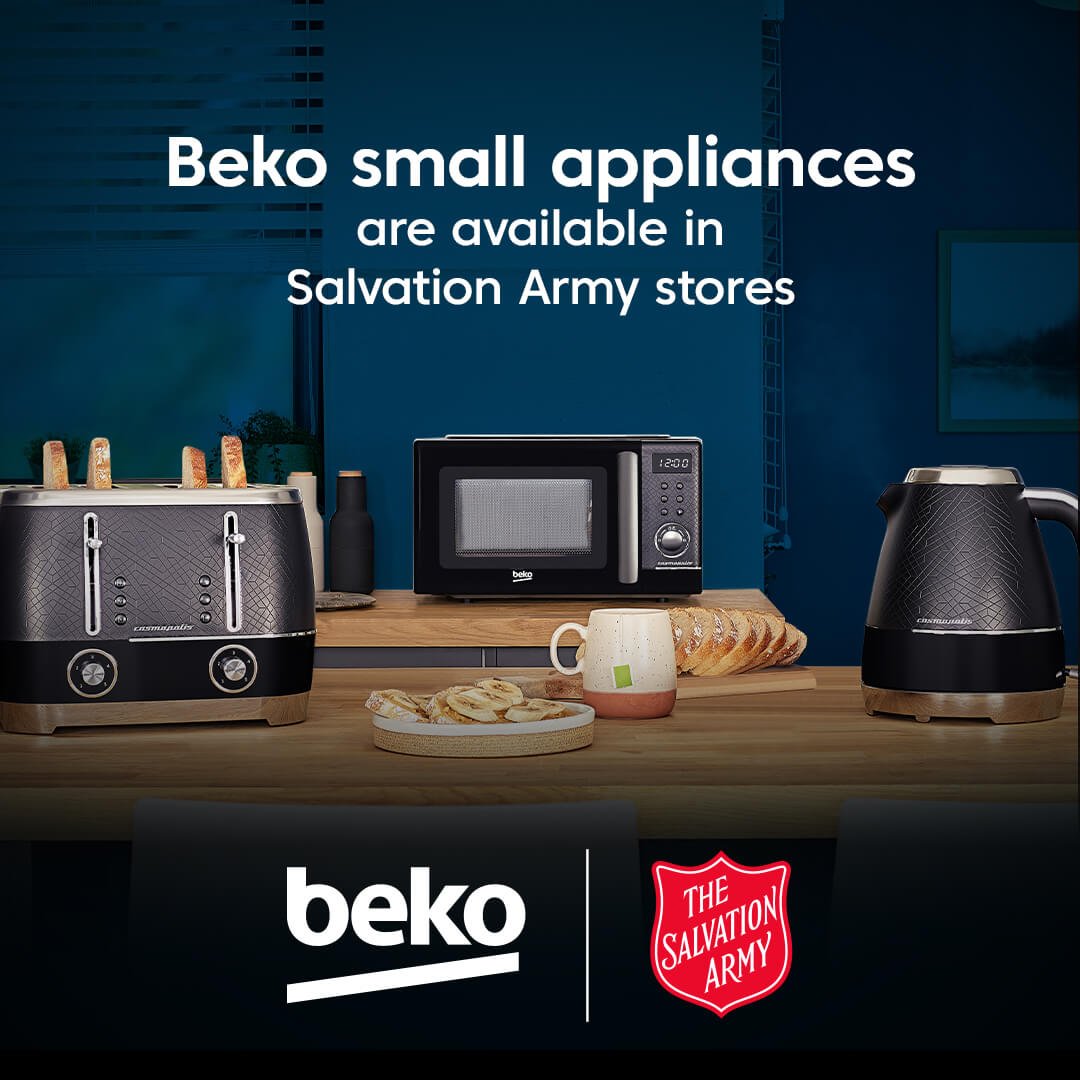How sustainable are your appliances? Beko partners with SATCoL
We’re well-versed in conversations about sustainable fashion and food, but have you considered the impact of your appliances and homeware on the planet? We should - according to the UN’s Global E-waste Monitor 2020, only 17.4% of electronic waste is collected and recycled, with 53.6 million metric tonnes of e-waste being generated worldwide in 2019.
Luckily, Beko, the UK’s number one large home appliance brand, is making a difference. The brand is known for its ovens, fridges and laundry machines, as well as small appliances like coffee machines, vacuums and microwaves, but it still has sustainability at its core. Not only does Beko produce high-quality products that last and last, but it also has a historic role in European environmental policy. Now, it’s partnered with SATCoL to support customers to recycle their appliances to reduce waste and raise money for The Salvation Army.
Here, Vijay Bhardwaj, marketing director at Beko Plc UK & Ireland, shares their sustainability stats with SATCoL.
When did you start to consider the environmental impact of your brand? Was there an 'ah-ha' moment or has it always been part of the thought?
Sustainability has been a key focus for Beko’s parent company Arçelik for well over a decade. In 2015, Arçelik were invited as speakers to the COP21 Conference in Paris and were early signatories to the Paris Pledge for Action on Climate change, marking a key point in their sustainability journey. This was an opportunity to reaffirm the commitment to the UN Sustainability Development Goals that Arçelik adhered to in their initial form in 2006. More recently, Arçelik has communicated its strong ambitions in reducing its carbon footprint, setting targets in line with the Science Based Targets Initiative to reach Net Zero by 2050. In addition to this, Arçelik have also pledged and reduce the emissions in Scope 1 and 2, as well as Scope 3 from product use, by 50% by 2030. As the biggest subsidiary of the Arçelik Group, Beko Plc has a key role to play in helping Arçelik reach its ambitions.
Why is it important to have sustainability and circular options in the appliance industry?
Addressing climate change and implementing circular economy principles are important for any industry. However, this is even more important for the white goods industry. Not only do appliances require carbon-intensive raw materials and heavy industry to manufacture, but they also consume a significant amount of energy to build and use across their lifetime. A key requirement in applying the circular economy principles is extending the usable life of products, whether that is by improving product quality, promoting product repairs, or giving products a new lease of life. Our collaboration with the Salvation Army helps to do just this
Why did you want to work with SATCoL?
Partnering with SATCoL has meant that the small domestic appliances returned from our customers have a second life or, in situations where this is not viable, are recycled responsibly. Not only this, our partnership has allowed us to support the wonderful work that SATCoL is doing through the revenue obtained from selling the products that were in a good condition. All the products received by SATCoL are checked and P.A.T tested in their 25,000 square ft processing centre and are consistent with Beko’s quality and safety standards. To help reduce waste further, any items that cannot be resold will be returned to Beko, where they will be responsibly recycled. The profits raised from this partnership are be used by The Salvation Army to continue to support the great work they do.
What else does Beko do to improve the sustainability of the brand?
Together with our parent company, we continue to focus on making our facilities and production units more efficient. We continually invest in cleaner technologies, including a planned $50 million investment in renewable energy and energy efficiency that includes 15MW renewable energy systems by 2030. The UK is also playing is part and we are now signed up to 100% renewable energy tariffs across all our sites and we are planning significant energy efficiency measures, as well as an investment in solar panels for the next few years.
In addition to this, we are working to reduce waste and water consumption in our factories, re-using resources and maximising our use of materials wherever possible. The materials we cannot use are recycled responsibly or released in a way that doesn’t harm the environment. For example, wastewater from our cooking factory is thoroughly cleaned and released into ponds where we keep healthy Koi carp.
We are also working to increase our use of recycled materials within our appliances. Our washing machines, tumble dryers, cookers, and dishwashers now feature parts made from recycled materials, including plastic bottles and discarded fishing nets. By transforming waste materials for use in our appliances, we are taking small steps to reduce the embedded carbon footprint of our products, whilst also promoting the circularity of materials. As a company, we have set a target for there to be 40% recycled plastic in all products by 2030. This target will be reached without compromising the quality or reliability of our appliances.
Being more sustainable is not just about production, it’s about products. With the biggest part of carbon emissions resulting from product use, we need to ensure we are bringing energy-efficient products to the market. As a company, we are committed to improving the average energy efficiency of our products year after year.


